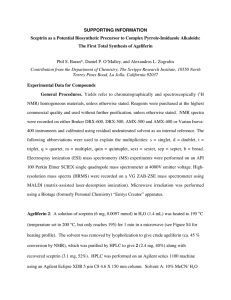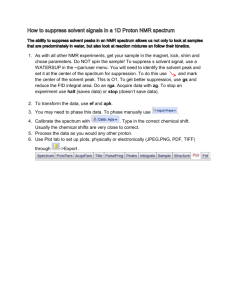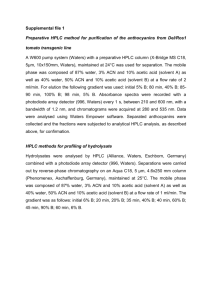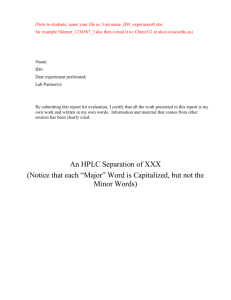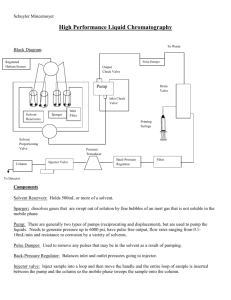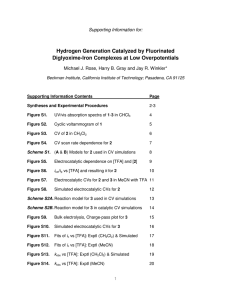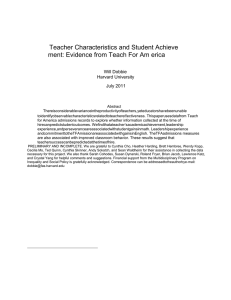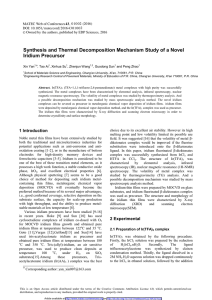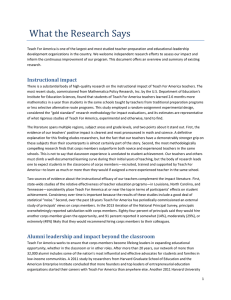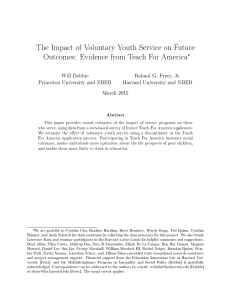General Methods for Syntheses
advertisement
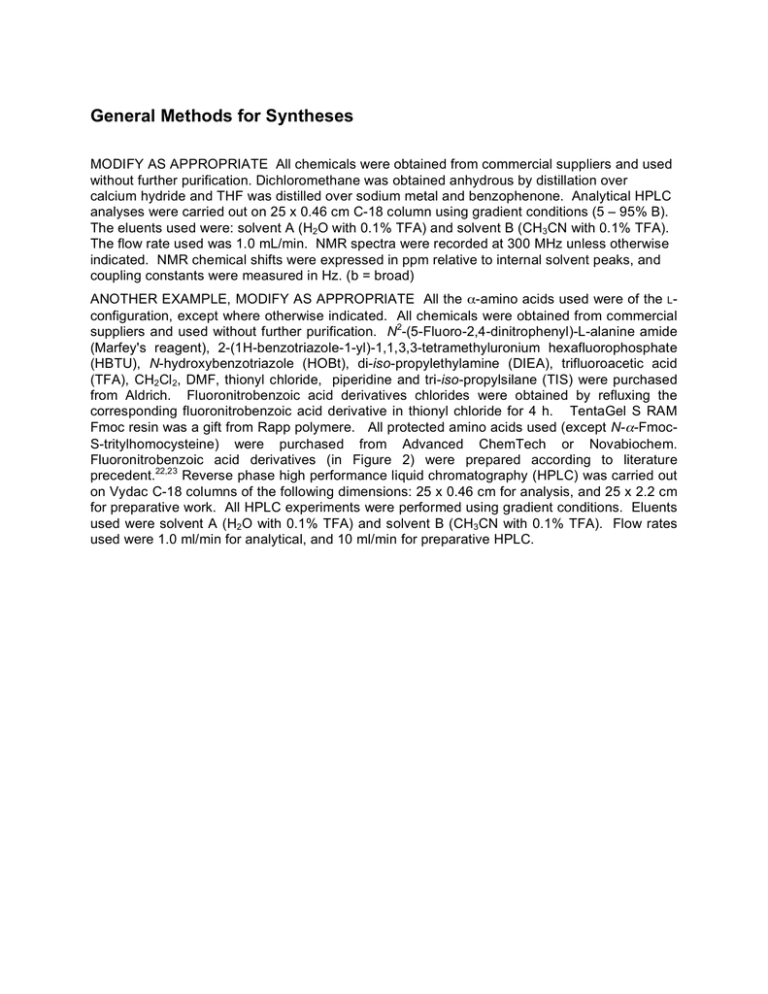
General Methods for Syntheses MODIFY AS APPROPRIATE All chemicals were obtained from commercial suppliers and used without further purification. Dichloromethane was obtained anhydrous by distillation over calcium hydride and THF was distilled over sodium metal and benzophenone. Analytical HPLC analyses were carried out on 25 x 0.46 cm C-18 column using gradient conditions (5 – 95% B). The eluents used were: solvent A (H2O with 0.1% TFA) and solvent B (CH3CN with 0.1% TFA). The flow rate used was 1.0 mL/min. NMR spectra were recorded at 300 MHz unless otherwise indicated. NMR chemical shifts were expressed in ppm relative to internal solvent peaks, and coupling constants were measured in Hz. (b = broad) ANOTHER EXAMPLE, MODIFY AS APPROPRIATE All the α-amino acids used were of the Lconfiguration, except where otherwise indicated. All chemicals were obtained from commercial suppliers and used without further purification. N2-(5-Fluoro-2,4-dinitrophenyl)-L-alanine amide (Marfey's reagent), 2-(1H-benzotriazole-1-yl)-1,1,3,3-tetramethyluronium hexafluorophosphate (HBTU), N-hydroxybenzotriazole (HOBt), di-iso-propylethylamine (DIEA), trifluoroacetic acid (TFA), CH2Cl2, DMF, thionyl chloride, piperidine and tri-iso-propylsilane (TIS) were purchased from Aldrich. Fluoronitrobenzoic acid derivatives chlorides were obtained by refluxing the corresponding fluoronitrobenzoic acid derivative in thionyl chloride for 4 h. TentaGel S RAM Fmoc resin was a gift from Rapp polymere. All protected amino acids used (except N-α-FmocS-tritylhomocysteine) were purchased from Advanced ChemTech or Novabiochem. Fluoronitrobenzoic acid derivatives (in Figure 2) were prepared according to literature precedent.22,23 Reverse phase high performance liquid chromatography (HPLC) was carried out on Vydac C-18 columns of the following dimensions: 25 x 0.46 cm for analysis, and 25 x 2.2 cm for preparative work. All HPLC experiments were performed using gradient conditions. Eluents used were solvent A (H2O with 0.1% TFA) and solvent B (CH3CN with 0.1% TFA). Flow rates used were 1.0 ml/min for analytical, and 10 ml/min for preparative HPLC.
